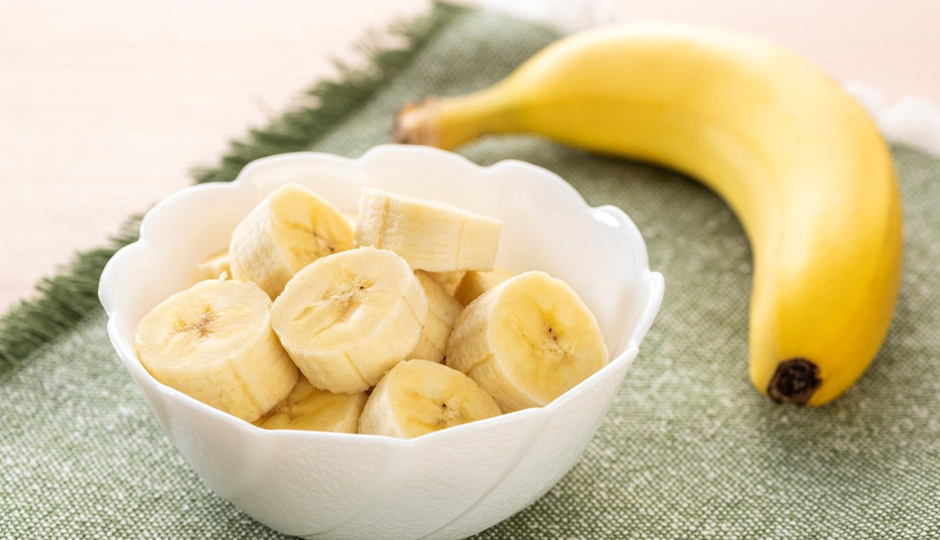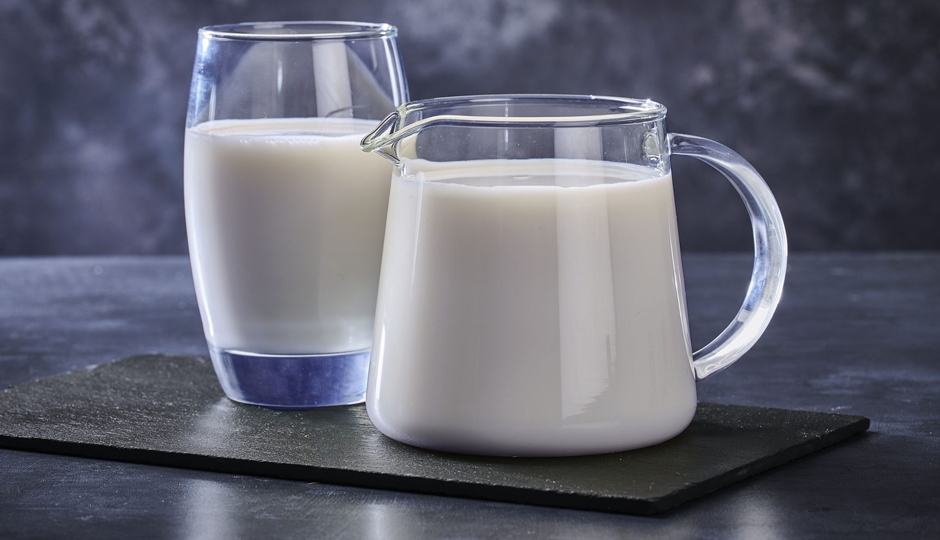- Home›
- Healthy Living›
- Amazing Health Benefits Of Pumpkin
Amazing Health Benefits Of Pumpkin
By: Priyanka Maheshwari Tue, 21 Nov 2023 11:32:55

Yellow pumpkins offer a multitude of benefits that significantly impact our well-being. As a prevalent vegetable worldwide, they belong to the Cucurbitaceae family, akin to squash, cucumber, zucchini, muskmelon, and watermelon.
These pumpkins vary in size and shape, boasting a thick, smooth outer skin and a fleshy, fibrous interior. The skin's hues span white, pale green, dark green, or yellowish orange, while the pulp inside ranges from yellow to orange to red. Typically, pumpkin plants sprawl like creepers, requiring ground support. Smaller ones may weigh between 2 to 10 pounds, while larger variants can reach a whopping 75 pounds. Besides culinary uses, pumpkin flowers are also savored for their distinctive taste and nutritional value.
Associated prominently with Halloween festivities, pumpkins star in pies and various delicacies worldwide. Yet, their significance surpasses culinary realms. Laden with essential vitamins, minerals, and antioxidants—like beta-carotene—pumpkins contribute remarkably to our health.
This vibrant vegetable, exuding cheerfulness, houses an impressive array of nutrients, making it a health treasure trove. It serves as a rich source of Vitamin A, Vitamin C, Vitamin E, flavonoids, and antioxidants such as xanthin, carotenoids, and lutein. Moreover, it offers a bounty of B complex vitamins like folate, niacin, pyridoxine, pantothenic acid, and thiamine. On the mineral front, it's a treasure trove, boasting iron, copper, potassium, calcium, and phosphorus.
Pumpkins stand not just as a festive emblem or a culinary delight but as a nutritional powerhouse, enriching our health in manifold ways.
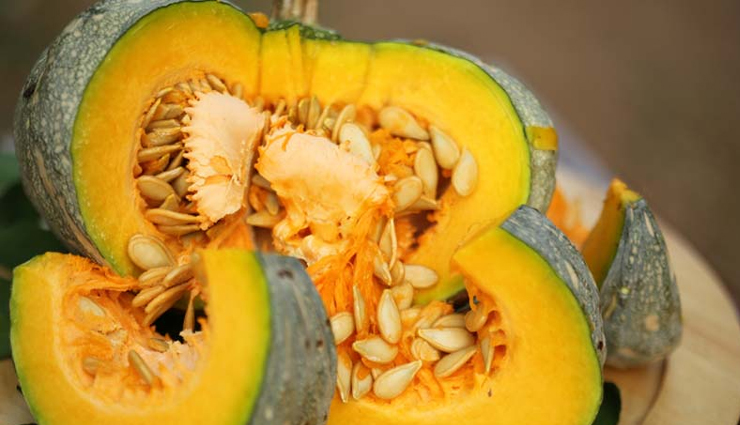
Pumpkin Nutrition Facts
According to the U.S. Department of Agriculture, 1 cup (116 g) of raw pumpkin contains:
Energy: 30.2 kcal
Water: 106 g
Protein: 1.16 g
Fat: 0.116 g
Carbohydrate: 7.54 g
Fat: 0.58 g
Sugars: 3.2 g
Calcium: 24.4 mg
Iron: 0.928 mg
Magnesium: 13.9 mg
Sodium: 1.16 mg
Potassium: 394 mg
Zinc: 0.371 mg
Copper: 0.147 mg
Vitamin C: 10.4 mg
Thiamin: 0.058 mg
Niacin: 0.696 mg
Riboflavin: 0.128 mg
Pantothenic acid: 0.346 mg
In addition to these nutrients, pumpkin contains folate, vitamin A, vitamin B6, vitamin E, beta carotene, as well as lutein and zeaxanthin.
Health Benefits of Pumpkin

# Low in Calories
Pumpkin stands out as an incredibly low-calorie vegetable. Just 100 grams of this nutritional powerhouse contains a mere 26 calories. It's no surprise that many dieticians champion pumpkin as a key component in weight reduction programs.
With its remarkably low calorie count, incorporating pumpkin into meals can be a smart move for those aiming to shed excess weight. This nutrient-dense vegetable not only satisfies hunger but also brings a wealth of essential nutrients to the table, making it a highly favorable choice in various weight management plans.
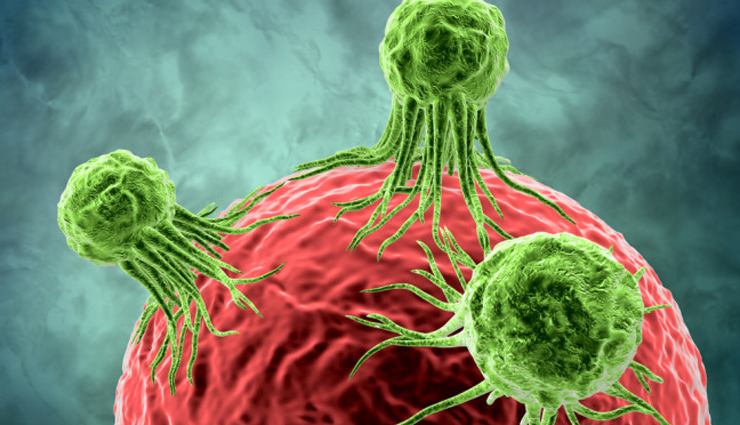
# Rich Source of Beta Carotene
The vibrant, eye-catching orange hue of pumpkins isn't just for show—it's a clear indicator of its abundant beta carotene content. Individuals who incorporate beta carotene-rich foods into their diets often experience a lowered risk of developing cancer.
Within pumpkins, compounds like Beta-Cryptoxanthin and various carotenoids play pivotal roles in reducing the likelihood of lung cancer, particularly among smokers. These elements not only mitigate inflammation but also contribute to decreasing the risk of cancer, showcasing the multifaceted health benefits of including pumpkin in one's diet.

# Reduces Asthma Attacks
Pumpkin's antioxidant prowess extends beyond its vibrant appearance, offering protection to the respiratory system against infections. These antioxidants play a pivotal role in reducing the frequency of asthma attacks and fortifying the respiratory system against potential infections. Incorporating pumpkin into one's diet can thus contribute significantly to maintaining respiratory health and mitigating the impact of asthma-related issues.
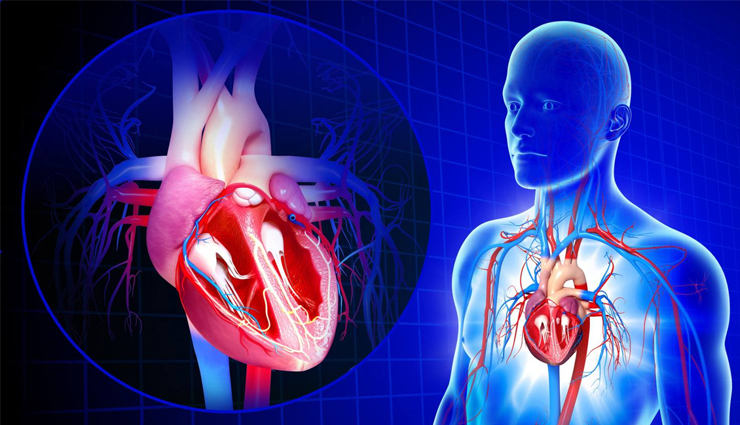
# Rich Source of Potassium
Potassium, a crucial mineral essential for the optimal performance of the heart and muscles, finds a significant presence in pumpkin. A single serving of this versatile vegetable delivers approximately 334 mg of potassium, ranking it among the highest potassium sources available.
Capitalizing on this potassium-rich attribute, incorporating pumpkin into your post-workout snack or meal can offer a substantial boost of this vital mineral. This addition not only complements your post-exercise nutrition but also supports the body's overall muscle function and cardiovascular health.
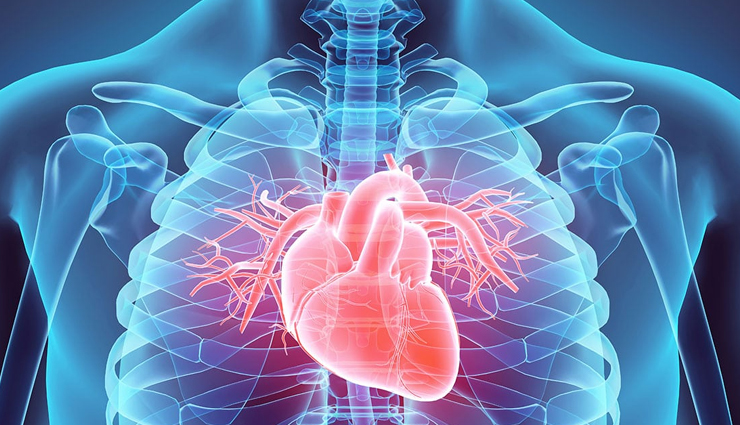
# Reduces Risk of Heart Diseases
Pumpkin emerges as a formidable ally in combating the accumulation of arterial deposits, effectively lowering the risk of heart diseases and strokes. Abundant in antioxidants, pumpkin works to thwart atherosclerosis, the hardening of arteries, significantly reducing the likelihood of this condition.
Moreover, the remarkable presence of phytosterol in pumpkin, akin to human cholesterol, proves instrumental in regulating cholesterol levels, steering them toward a healthier balance. This unique component aids in normalizing cholesterol levels, contributing to the maintenance of a healthy cardiovascular system. Additionally, pumpkin's properties help minimize the risk of high blood pressure, further fortifying its role in promoting heart health and reducing the potential for cardiovascular complications.

# Boosts Immune System
Pumpkin serves as a rich source of magnesium, a vital nutrient essential for sustaining muscle function and bolstering the immune system. Its magnesium content contributes significantly to supporting muscle health and fortifying the body's immune response.
By fostering the production of white blood cells, pumpkin plays a pivotal role in enhancing the immune system's resilience. This strengthened immunity empowers the body to mount a robust defense against a spectrum of infections, including colds, flu, and fevers. Embracing pumpkin in your diet thereby becomes an effective strategy for fortifying immunity and bolstering the body's defense mechanisms against various illnesses.
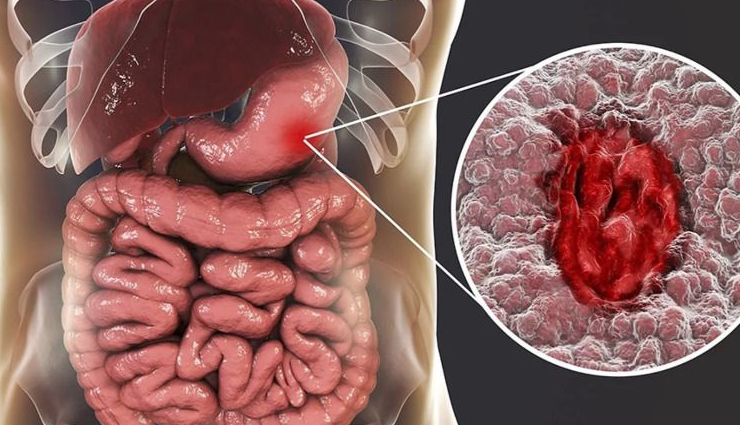
# May Prevent Peptic Ulcer
Pumpkin stands out as a remarkable detoxifying food, possessing inherent diuretic properties that facilitate the elimination of toxins and waste materials from the body. This natural diuretic quality aids in flushing out harmful substances, promoting a healthier internal environment.
Furthermore, the medicinal attributes inherent in pumpkin play a soothing role in calming the gastrointestinal tract. This calming effect serves as a preventive measure against peptic ulcers, contributing to the maintenance of digestive health. Incorporating pumpkin into your diet thus supports not only detoxification but also gastrointestinal well-being, owing to its beneficial medicinal properties.
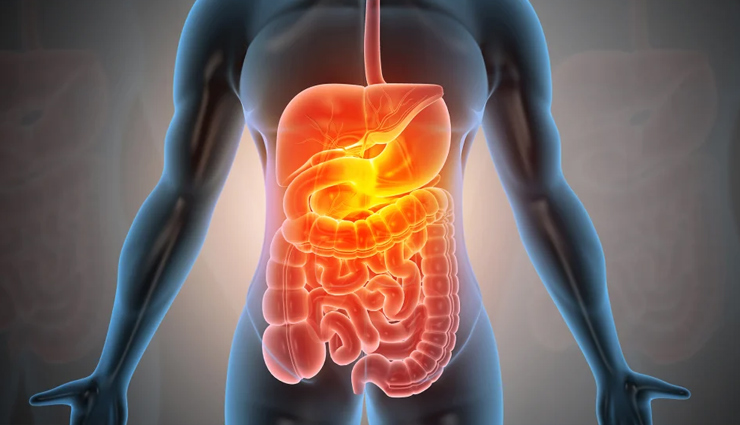
# Rich Source of Fiber
Pumpkin emerges as an outstanding source of beta-carotene, a valuable form of Vitamin A that extends its benefits to the digestive system. This nutrient aids in digestion and acts as a deterrent against constipation, promoting smooth and regular bowel movements.
Moreover, the richness in beta-carotene within pumpkin plays a role in prolonging the feeling of fullness in the stomach for extended durations. This satiating effect not only aids in managing appetite but also contributes to maintaining a sense of satisfaction over longer periods, making pumpkin an advantageous addition to support digestive health and promote feelings of fullness.

# Reduces Stress and Depression
A deficiency in tryptophan can often correlate with feelings of depression. Fortunately, pumpkin stands out as a rich source of L-tryptophan, an essential amino acid renowned for its ability to alleviate depression and stress. Studies highlight pumpkin's potential as a natural antidepressant, attributing its efficacy to the presence of L-tryptophan.
Beyond its antidepressant properties, pumpkin's sedative characteristics hold promise in aiding insomnia treatment. These inherent properties suggest that incorporating pumpkin into one's diet may potentially contribute to alleviating symptoms of depression, stress, and sleep-related issues, offering a holistic approach towards mental well-being.

# Rich Source of Vitamin A
Pumpkin emerges as a powerhouse of Vitamin A, a vital nutrient crucial for preserving eye health, enhancing vision, and sustaining optimal eyesight. The abundance of Vitamin A in pumpkin plays a pivotal role in maintaining the health of the eyes and supporting clear vision.
Additionally, zeaxanthin, found in pumpkin, serves as a protective shield by filtering harmful UV rays within the retina. This protective mechanism helps safeguard against age-related macular diseases that commonly affect the elderly, bolstering eye health and offering defense against degenerative eye conditions. Including pumpkin in your diet thus contributes significantly to the maintenance of healthy eyes and the prevention of age-related eye issues.

# Prevents Inflammatory Diseases
Consistent intake of pumpkin presents a potential reduction in the risk of developing inflammatory diseases. Moreover, preliminary studies suggest a possible correlation between consuming pumpkin and lowering the risk of rheumatoid arthritis, although further research is necessary to substantiate these findings.
The anti-inflammatory properties inherent in pumpkin hold promise in mitigating the risk of various inflammatory conditions. While initial indications suggest a potential link between pumpkin consumption and a reduced risk of rheumatoid arthritis, ongoing research endeavors aim to deepen our understanding of how this versatile vegetable may positively impact inflammatory diseases.

# Protects Against Prostate Cancer
Pumpkin's impressive content of carotenoids and zinc stands as a protective shield against prostate cancer. This robust combination plays a pivotal role in averting prostate enlargement and curbing the overstimulation of male hormones that often contribute to prostate issues.
The carotenoids and zinc abundant in pumpkin collectively contribute to shielding against the development of prostate cancer. These elements work synergistically to counteract prostate enlargement and regulate male hormone activity, showcasing the potential of pumpkin as a valuable dietary component in promoting prostate health and reducing the risk of associated complications..
# Rich Source of Vitamin K
Pumpkin stands tall as a prime source of Vitamin K, delivering approximately 40% of the recommended daily intake in a single serving. Vitamin K's presence in pumpkin holds significant benefits for both bone growth and heart health, contributing to their maintenance and overall well-being.
Furthermore, Vitamin C found in pumpkin plays a crucial role in supporting proper tissue growth and repair within the body. A mere serving of pumpkin covers 20% of the daily recommended dosage of Vitamin C, showcasing its value in facilitating tissue health and ensuring optimal growth and repair processes in the body. Incorporating pumpkin into your diet thus proves advantageous in meeting essential nutrient requirements crucial for bone strength, heart health, and tissue maintenance.
Tips for Usage (Cooking / Eating):
Pumpkins are incredibly versatile, fitting into both savory and sweet recipes, offering numerous cooking options. However, preparing them requires some steps. Due to their tough skins, slicing pumpkins demands a sturdy knife. To start, place the pumpkin on a thick tea towel and cut it into halves. If the skin proves particularly tough, gently hammer the knife in with a rolling pin. Once the first side is cut, turn the pumpkin to slice the other side until it splits into two. Remove the seeds, and the pumpkin can then be quartered.
Depending on your recipe, you can further dice the pumpkin into chunks or wedges. Peel off the skin unless you plan to roast it, ensuring it's prepped according to your culinary needs. This versatile approach opens the door to a range of delightful pumpkin-based dishes, allowing you to explore its culinary potential in both sweet and savory creations.
Pumpkins can be used in various ways, some of which are given below.
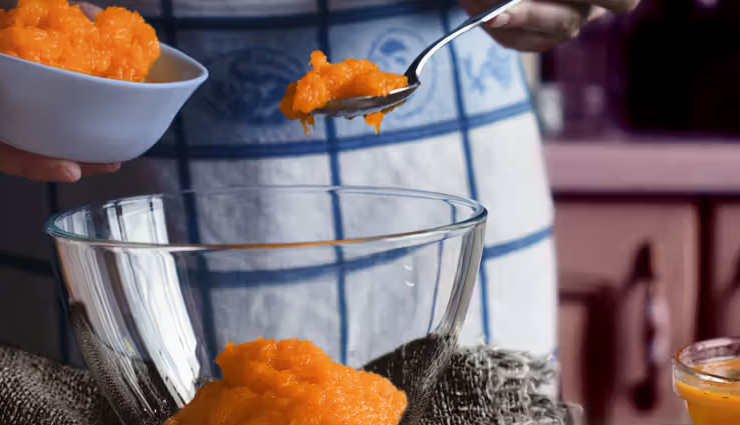
1. When cooking pumpkins, it's advisable to maintain medium temperatures to prevent their flesh from turning stringy. However, if you encounter stringiness during the cooking process, there's a simple remedy. Using an electric mixer, beat the pulp at high speed for roughly 10 seconds, then switch to a lower speed for approximately 60 seconds. To facilitate easy removal of the strings, ensure they're wrapped around the beaters during this process. This technique can help salvage the texture of the pumpkin, ensuring a smoother consistency for your culinary endeavors.
2. Mashed, cooked pumpkins offer a fantastic addition to cake and muffin recipes, lending moisture and enhancing texture. Their versatility allows them to seamlessly blend into these baked goods, elevating both flavor and consistency.
Additionally, shelled pumpkin seeds present a wholesome and nutritious substitute for pine nuts in various recipes. Their rich flavor and nutritional benefits make them a viable alternative, adding a distinct touch to dishes while providing a healthy twist. Incorporating these pumpkin variations into recipes not only introduces unique flavors but also offers a boost of nutrients, making for delightful and wholesome culinary creations.
3. When crafting pumpkin pies, both homemade pureed pumpkin and canned varieties are suitable options. However, baking the pumpkin rather than steaming or boiling is recommended to reduce excess moisture. Once baked, mash the pumpkin and drain it through cheesecloth before using it in pies to achieve the desired consistency.
Pumpkin pies hold a cherished place in American cuisine. In a YouGov survey involving 1,055 adults in the United States, 35% of respondents planning to celebrate Thanksgiving expressed a preference for pumpkin pie. Among those celebrating Thanksgiving, 37% indicated a preference for crafting their pies from scratch, while 32% mentioned their pies are homemade but may incorporate store-bought shortcuts. The remaining 26% opt for store-bought pies to grace their Thanksgiving tables. This widespread love for pumpkin pie reflects its significance as a beloved holiday dessert in American households.
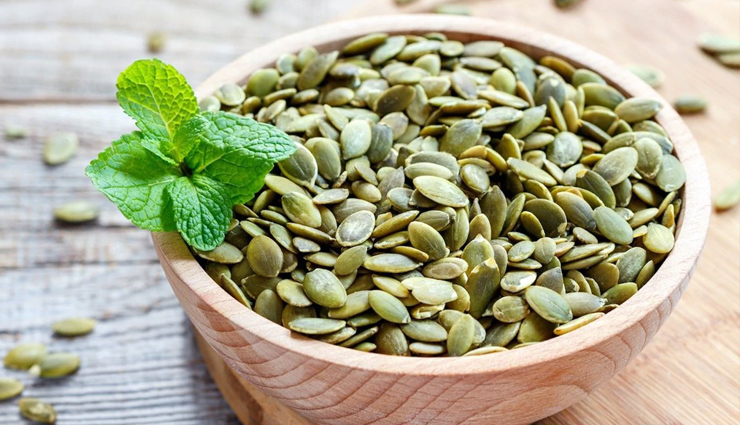
4. Roasted pumpkin serves as a delightful vegetarian dish suitable for any occasion. To prepare, start by preheating the oven to 210 degrees Celsius. Cut a fresh pumpkin in half and carve it into your preferred sized pieces. Arrange these pieces on a baking dish, drizzle some oil over the pumpkin, and thoroughly coat them using a metal spoon.
Next, sprinkle salt, pepper, and rosemary generously over the pumpkin. Place the dish in the preheated oven. After about 30 minutes, carefully remove the dish, stir the pumpkin pieces, and return them to the oven. Continue baking for another half an hour or until the pumpkin achieves a soft, golden-brown texture. This simple yet flavorful roasting method ensures a delicious outcome, perfect for enjoying the natural sweetness and richness of roasted pumpkin.
5. Pumpkin seeds, commonly known as pepitas, make delightful snacks when roasted, especially when prepared with a sweet and salty twist. To start, preheat the oven to 300 degrees Fahrenheit. Spread the seeds evenly on a baking sheet and bake them for approximately 50 to 60 minutes until they become dry.
Once dry, increase the oven temperature to 350 degrees Fahrenheit. Remove the baking sheet from the oven and transfer the seeds to a bowl. Toss them with butter, sugar, salt, and cinnamon, ensuring an even coating. Return the seasoned seeds to the baking sheet and toss occasionally while baking for an additional 10 to 15 minutes, or until they turn a golden brown hue. This simple yet flavorful roasting method transforms pumpkin seeds into a delicious sweet and salty snack, perfect for indulging in a delightful crunch.
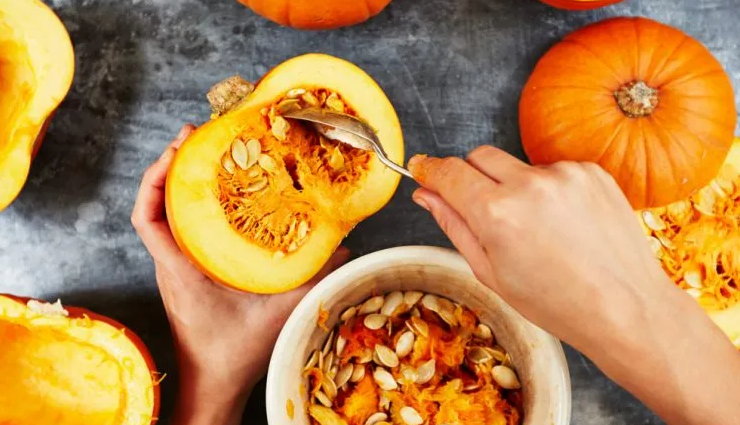
6. Pumpkin seed oil, a significant by-product of pumpkin seeds, holds a notable place in culinary applications. Renowned for its robust flavor and distinct color, this oil proves versatile in various culinary endeavors. It can be blended with other oils for cooking, used in salad dressings, or incorporated into diverse recipes to infuse a unique taste and visual appeal.
Thanks to its strong flavor profile and rich color, blending pumpkin seed oil with other oils enhances the overall taste and appearance of dishes. Whether used in cooking, as a salad dressing base, or in other culinary creations, this oil adds a distinctive touch, elevating the flavor and aesthetics of diverse cuisines.
7. Creating a delicious pumpkin and leek soup is a delightful endeavor. Begin by heating oil in a sizable saucepan over medium heat. Add leeks, celery, and garlic to the pan, cooking them until they soften, which typically takes around 25 minutes. Season the mixture with 1 ¾ teaspoons of salt and ¼ teaspoon of pepper.
Next, carefully transfer the soup into a blender and blend until it reaches a smooth consistency. Pour the blended soup into bowls and add a delightful finishing touch by garnishing it with fragrant rosemary. This simple yet flavorful recipe results in a velvety, aromatic pumpkin and leek soup, perfect for savoring comforting flavors and soothing warmth.
8. Crafting pumpkin chips offers a healthier alternative to traditional potato chips. To begin, heat approximately 1 ½ inches of peanut oil in a soup pot over medium to high heat. Once the oil is hot, gently add the slices of pumpkin to the pot and sauté them for about 3 minutes or until they attain a golden hue. As they finish cooking, the chips will start floating to the surface of the oil.
Using a slotted spoon, carefully remove the pumpkin chips from the oil and place them on a platter lined with paper towels. This helps absorb any excess oil. Season the freshly cooked chips with salt according to taste and serve. This simple yet flavorful method offers a delightful and nutritious twist to snacking, providing a crispy, golden treat perfect for indulging in a healthier chip option.
9. Creating sautéed pumpkins offers a delightful autumn dish bursting with flavor. Begin by heating 2 tablespoons of butter in a large skillet over medium heat. Add approximately 1 ½ pounds of seeded, peeled, and cut pumpkin chunks to the skillet, ensuring they're coated evenly with the butter. Cover the skillet and allow the pumpkin chunks to cook until they turn soft, stirring occasionally.
Once the pumpkin reaches a softened state, uncover the skillet and continue sautéing for approximately 15 minutes, or until the pumpkin achieves a golden-brown color and becomes fork-tender.
To enhance the flavors, season the sautéed pumpkin with salt and pepper according to taste. For a touch of sweetness, drizzle the dish with maple syrup, adding a delightful richness to the flavors. Serve the sautéed pumpkin warm, relishing its buttery, golden-brown exterior and tender, flavorful interior—a perfect autumnal treat for your palate.
10. Creating delicious pumpkin bread is a delightful endeavor that brings together canned pumpkin puree and whole wheat flour. To begin, preheat the oven to 350 degrees Fahrenheit and prepare two loaf pans by coating them with cooking spray.
In a large bowl, combine all-purpose flour, whole wheat flour, baking soda, baking powder, and salt. In another large bowl, whisk together egg whites, brown sugar, pumpkin puree, and oil until well combined. Gradually add this pumpkin mixture to the dry ingredients, stirring until thoroughly mixed.
Next, spread the batter evenly into the prepared loaf pans, smoothing the top for an even finish. Place the pans in the preheated oven and bake the loaves for approximately 50 to 60 minutes, or until their tops acquire a golden-brown hue.
Once baked, carefully transfer the loaves from the pans onto a wire rack, allowing them to cool completely. Your freshly baked pumpkin bread is now ready to be enjoyed—a delightful treat offering the comforting flavors of pumpkin and whole wheat, perfect for any occasion.



